|
|
Biomining: New Era of Mining Technologies
Reforms in the system of higher education of Ukraine are associated with a number of innovations, which include the autonomy of universities, adaptation of research and educational process to the new needs of society and development of academic mobility programs. One of the most suitable examples of innovations in higher education is implementation of the four-year educational project “Biotechnology in mining – integration of new technologies into educational practice” at the State Higher Educational Institution “National Mining University” (NMU) jointly with Technical University “Bergakademie Freiberg” (TU”BAF”, Germany) since 2015. The project is supported by German Academic Exchange Service (DAAD) in the framework of program “Professionally related partnership with universities of developing countries”. The purpose of the educational project is introducing new modules entitled “Biominig” for students in the area of specialty “Ecology and Environmental Protection”, “Mining” and “Geology” into NMU curriculum. 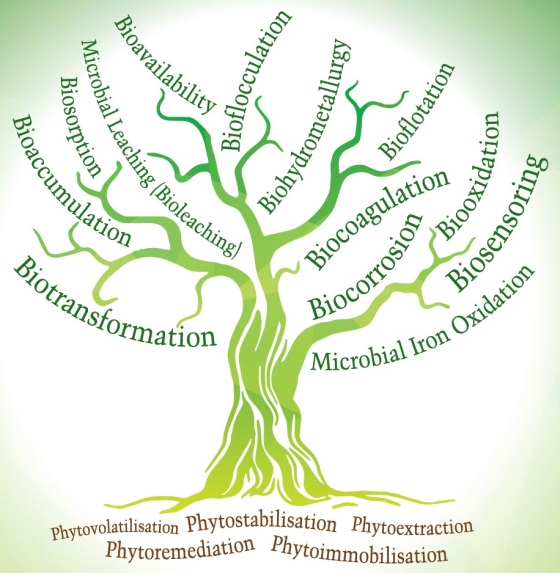
The term “Biomining” is relatively new for both experts in the field of mining and specialists in the area of ecology. It covers the use of a wide range of environmentally friendly “green” technologies in the mining industry, based on the processes of bioleaching, biological treatment of mine water, bacterial coal desulphurization, phytoremediation of contaminated areas and other technologies. Certainly, this subject became as the object of interest from the side of students, lecturers and researchers of NMU. Within the framework of educational project it is envisaged development and implementation of two Bachelor disciplines into NMU curriculum: “Fundamentals of Microbiology for Mining” and “Fundamentals of Phytoremediation”; and two disciplines for Master students: “Biomining: Part І. Microbiological Technologies in Mining” and “Biomining: Part II. Phytomining”. According to the project plan the NMU students carry out laboratory practical work at the TU”BAF” during 5 weeks in 2015 and 2016. Besides, students – participants of the project will do research and defense their Master thesis under double supervising by professors from TU”BAF” and NMU. As part of the joint activities the series of educational excursions on industrial objects, round tables and seminars for expert discussions on the topic of biomining are annually organized on the basis of NMU. On the fourth year it is planned to organize an international scientific conference devoted to applied approach of biotechnology in mining. 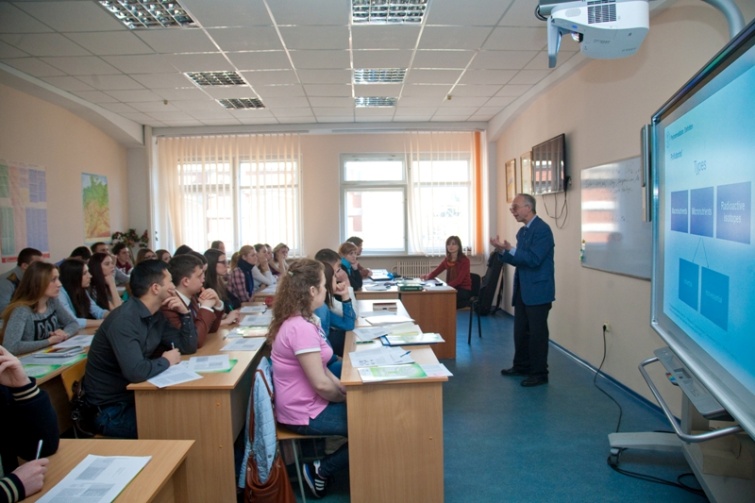
Upon completion of the project in 2018 it is planned to create a primary laboratory on biomining, where students will have an opportunity to consolidate gained theoretical knowledge into practice. Moreover, continuation of cooperation in the framework of other academic mobility programs will allow Master students from both universities to take part in joint research projects, learn and apply knowledge and modern biotechnological techniques in mining. In the long term, implementation of above mentioned academic courses in the area of mining biotechnology into NMU curriculum will create a beneficial background for development of the comprehensive Master program aimed at the preparation of highly skilled specialists in mining. Finally, integration of innovative technologies in the field of mining and mineral processing will promote the processes of ecologization in mining industry of Ukraine. Coordinators of the project are: Prof. H. Heilmeier and Prof. M. Schloemann from TU”BAF”, and As. Prof. I. Klimkina and As. Prof. O. Kovrov from NMU. In the 2015-2016 academic years, the new disciplines on biomining are successfully being delivered for both Bachelor and Master students of NMU in English language. These disciplines allow to the students acquire knowledge and skills for planning, implementation and estimation of environmentally friendly technologies in the mining industry. As has been shown by the first experience, both teaching and learning of new disciplines require a lot of efforts in terms of preparation of training materials and student’s perception of the new content in English. In order to obtain feedback, we asked the students to share their impressions about new courses on biomining and phytoremediation. 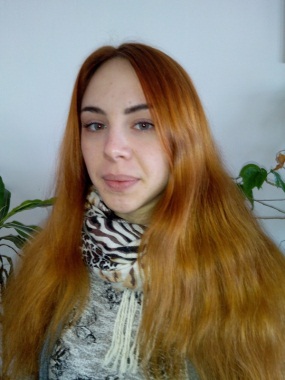
Nataliia Podpriatova, 4th year Bachelor student. “I am truly lucky that last year and now I have an opportunity to take the classes on “Fundamentals of Microbiology for Mining” in English. This is a real chance to develop myself as future qualified environmental expert and improve my language skills”. 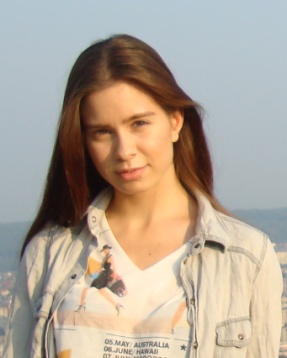
Anna Didenko, 5th year Master student. “New disciplines on biomining, which are implemented at the Department of Ecology are very useful and informative from the professional point of view. Even students with intermediate level of English showed a great interest to modern biotechnologies in mining. Besides, it helped enhancing the personal level of language skills”. 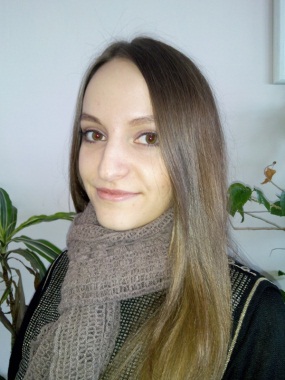
Olga Ivanova, 4th year Bachelor student. “In my opinion, new innovative courses at NMU reflect a modern trend of education reform in Ukraine, which is moving steadily into a common European community. Courses about microbial leaching of minerals and phytoremediation are compiled in logical and understandable way that allows learning the environmental approaches in mining with interest and pleasure”. Thus, it is possible to conclude with confidence, that successful implementation of bilateral DAAD project at NMU is a vivid example of integration of new educational programs into common European educational space and modernization of Ukrainian higher educational system in accordance with requirements of present time and future challenges.
Practical Training – in Freiberg!
Practical training of students is always a compulsory component of the educational and professional programs for obtaining qualification and acquisition of necessary skills and abilities. Furthermore, practical training on the basis of international university abroad – is not just a process of mastering by students of modern methods, forms and means of future professional activity, but also intensive language training and the ability to effectively adapt to the new environment. Not every Ukrainian University can boast the possibility of organization the practical trainings abroad. But the National Mining University in this sense is a pleasant exception. Every year students from the Faculty of Mining go to the partner universities in Germany and Poland for several weeks, where have a unique opportunity to deepen and consolidate the theoretical knowledge from different professional disciplines of the curriculum. Technical University “Bergakademie Freiber” (TUBAF, Germany) is a reliable partner in the field of NMU academic mobility and research. Currently, bilateral cooperation has reached a new level due to the educational project “Biotechnology in mining – integration of new technologies into educational practice” with the support of the German Academic Exchange Service (DAAD). In August-September 2015 within the framework of the project 6 students from the Faculty of Mining during 5 weeks completed laboratory courses on the basis of Institute of Bioscience at TUBAF. 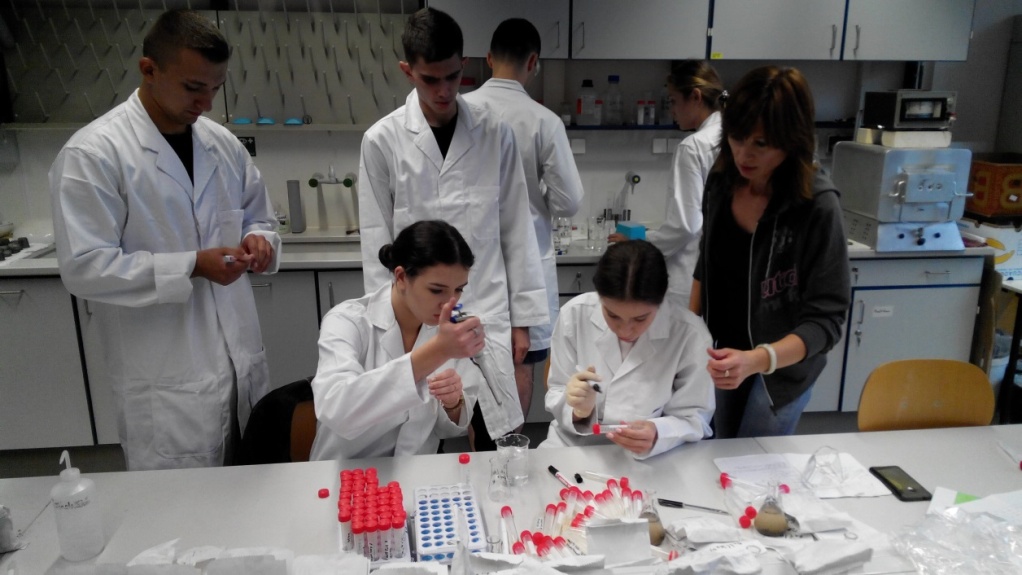
The subject of practical trainings has covered the wide spectrum of laboratory research in the areas of phytomining and bacterial leaching of metals. Under supervising by Associate Professors of Department of Ecology Iryna Klimkina and Oleksandr Kovrov, the best students of Department of Underground Mining (Viktoriia Matveieva, Yevhen Cheblia, Vladyslav Dankiv and Roman Chesnakov) and Department of Ecology (Anna Didenko and Kseniia Bozhenko) have mastered advanced methods for laboratory research. The first two weeks, students worked in the ecological laboratory, which is engaged in research in the field of phytomining, phytoextraction and phytoremediation. Under the direction of experienced scientists from the Institute of Bioscience Prof. Hermann Heilmeier and PhD student Oliver Wiche, our students have analyzed the ability of different plant species under different conditions to accumulate rare earth elements in their tissues or in soils near the root system (so called rhizosphere area). Herewith, students have prepared plant materials and soil samples for chemical analysis using the ICP-MS method (Inductively Coupled Plasma Mass Spectrometry). Simultaneously, they have measured pH value of samples, electrical conductivity, concentrations of different nutrients (PO43-, NO3-, NH4+) and so on. At the end of the experiments students received a large number of concentrations values of different chemical elements including rare (in total 43). 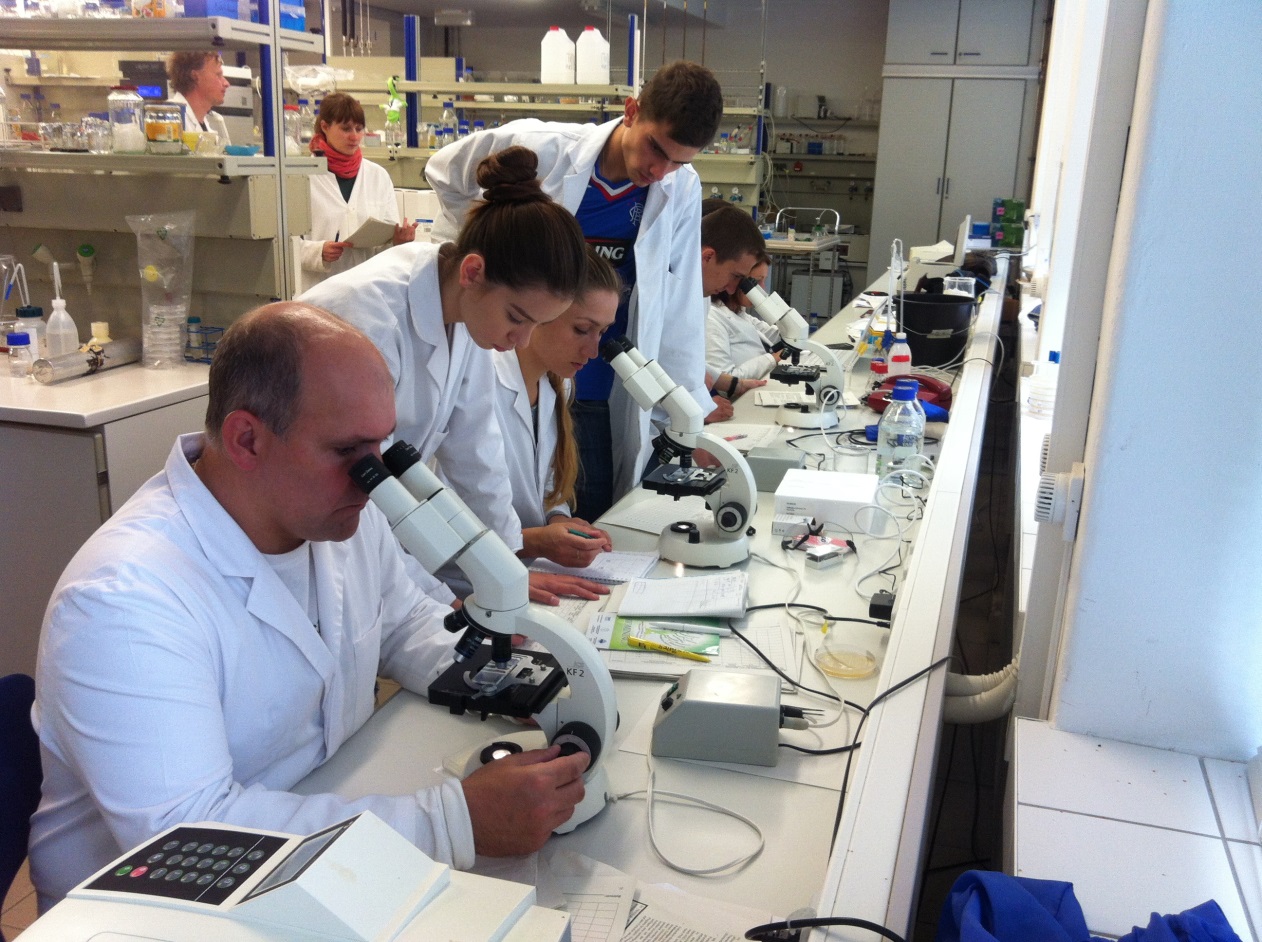
The next three weeks students enjoyed the opportunity to conduct experiments in the laboratory of environmental microbiology (Head – Prof. Michael Schloemann). In this lab, students primarily mastered the basics of microbiological material microscoping, staining techniques and approaches for inactivation of microorganisms. Then, they have studied the methods of isolation and identification of nitrogen-fixing bacteria and microbial leaching of elemental sulfur and sulphide copper (chalcocite). What was the most impressive, it is an availability of different equipments and materials to perform complex laboratory research. That’s where science comes true! In the laboratory, our group was supervised by the research team led by Prof. Stefan Kaschabek. They sincerely shared their experience in the field of microbiology and helped in every way during performing the laboratory work. An interesting experiment, which for students was the most memorable, was performed with bacterium Ralstonia eutropha grown on benzoate. This bacterium is able to utilize a variety of aromatic compounds and produce a special biopolymer (bioplastics, polyhydroxybutyrate), which is currently being used in practical surgery as suture material and has the ability to be decomposed in biological way. Nitrogen-fixing bacteria from genus Rhizobium, which are able to assimilate molecular nitrogen from the air, students have investigated during three weeks in vivo (it is a method to observe alive cells). These bacteria live in symbiosis with root system of leguminous plants (peas, lupine, clover, alfalfa and others). Such bacteria are very important for providing the nitrogen cycle in the nature, particularly for supplying of available forms of nitrogen to higher plants. In addition to laboratory work, NMU students and teachers had the opportunity to visit the memorial image of Freiberg – an educational and scientific research mine “Reiche Zeche”, which gives not only an idea about a history of mining city, but also is a unique polygon for experiments designing and practical trainings. Having a total length of almost 20 km, during 300 years this mine had produced about eight tons of silver. The mine tour on the horizon 150 m has shown to Ukrainian students and teachers the great history of silver mining, internal infrastructure and geology formation in Freiberg. Despite the fact that the mine was liquidated in the 70’s of last century, it continues to live opening their treasures and secrets to inquisitive tourists and researchers.
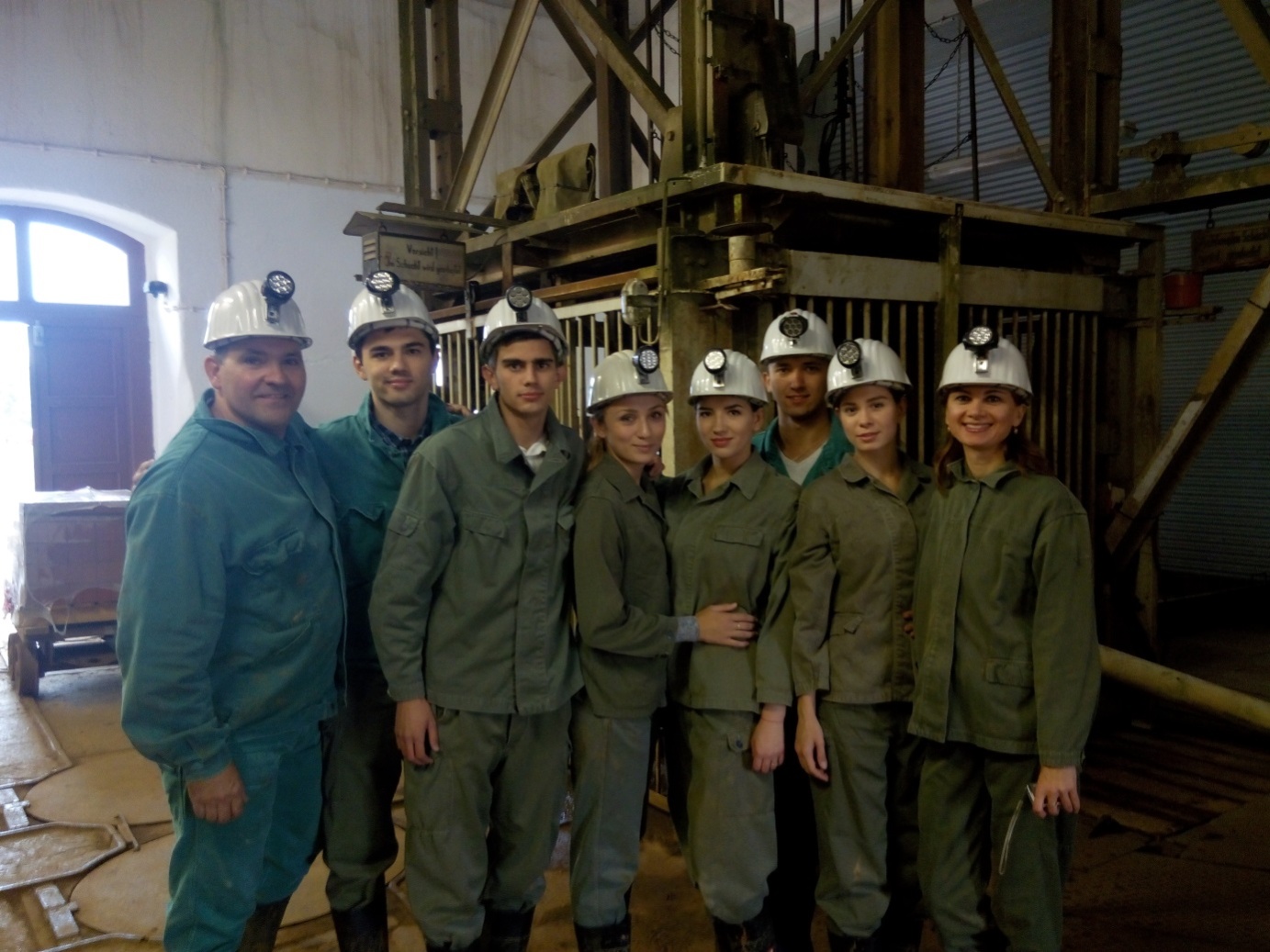 Such outstanding practical trainings and a fantastic experience for our students will always be kept in our minds. This year we again will come back to Freiberg and meet our colleagues and friends united in a common desire for scientific research. |

